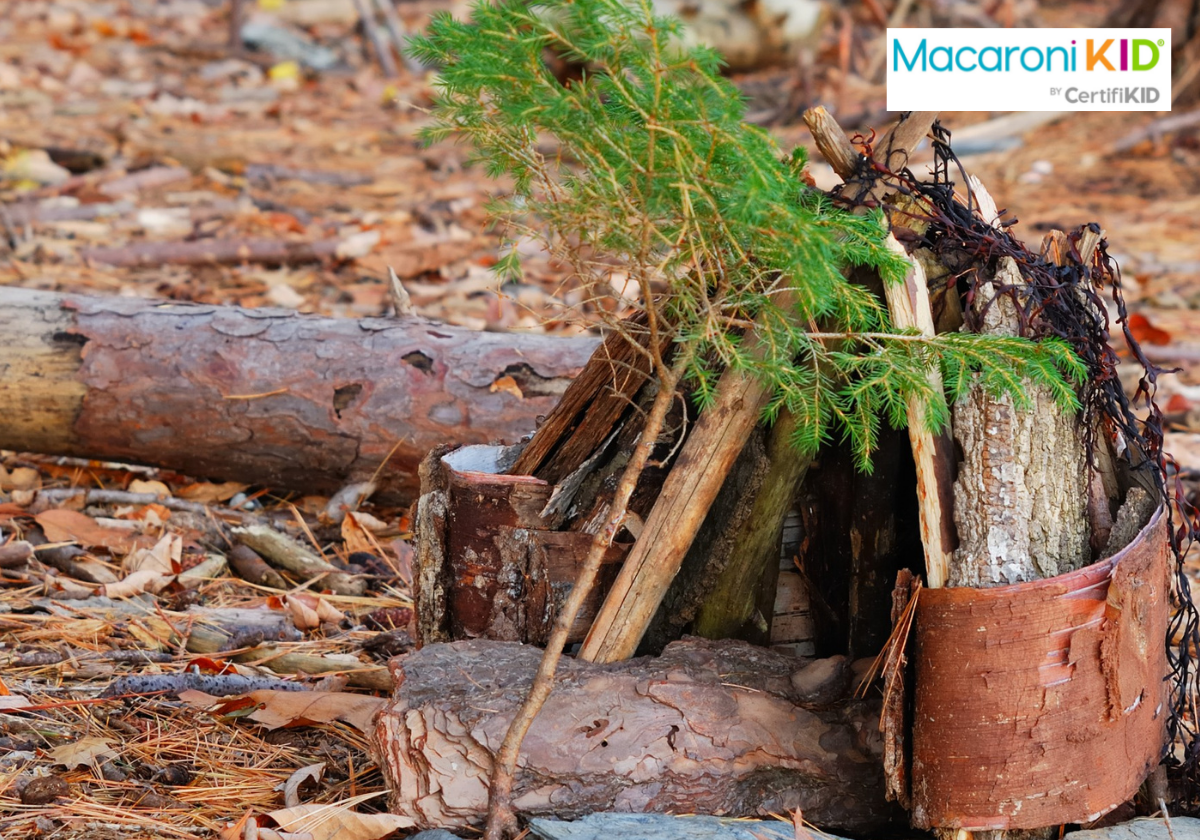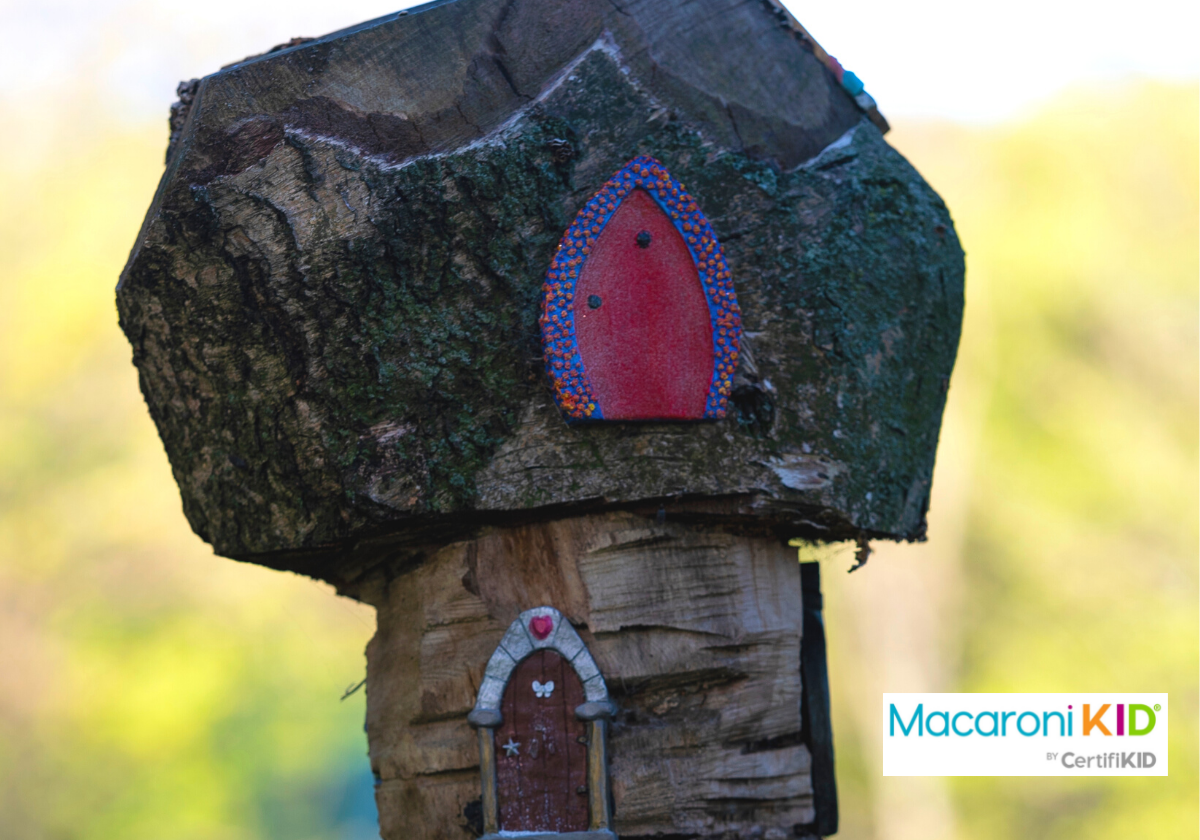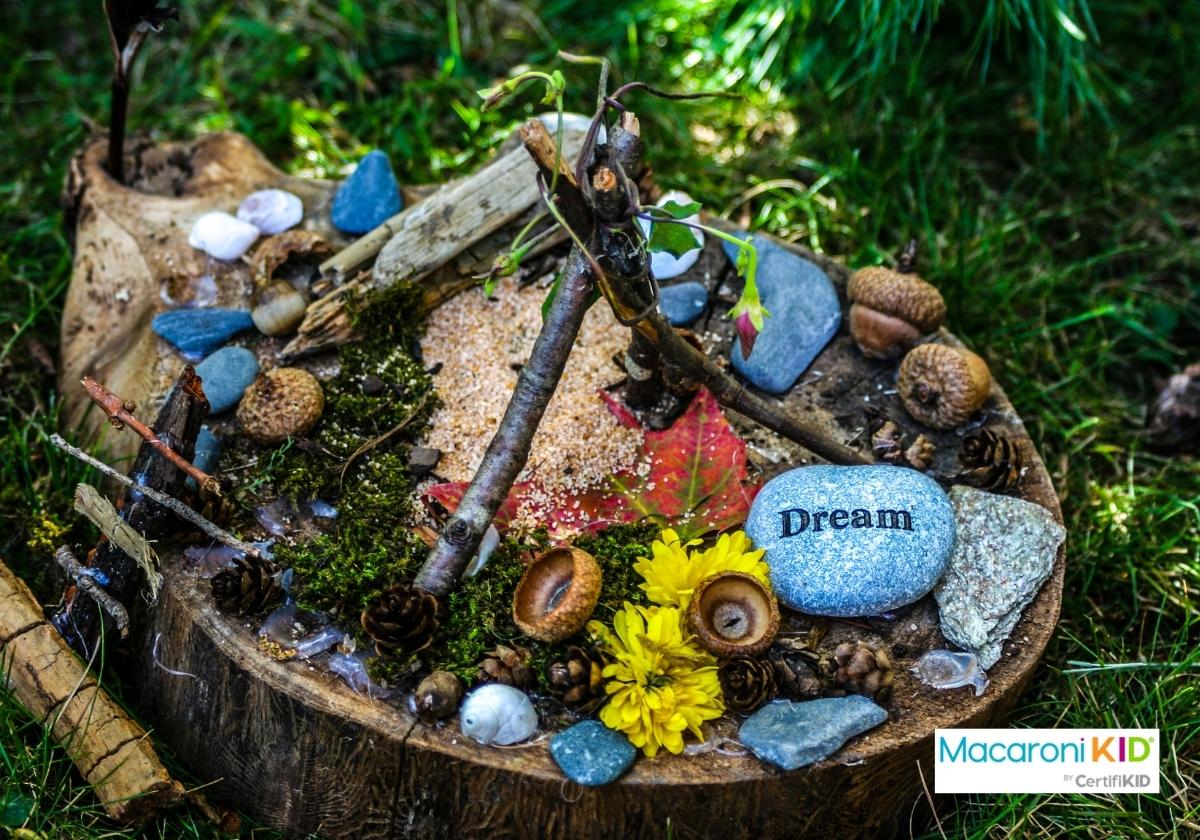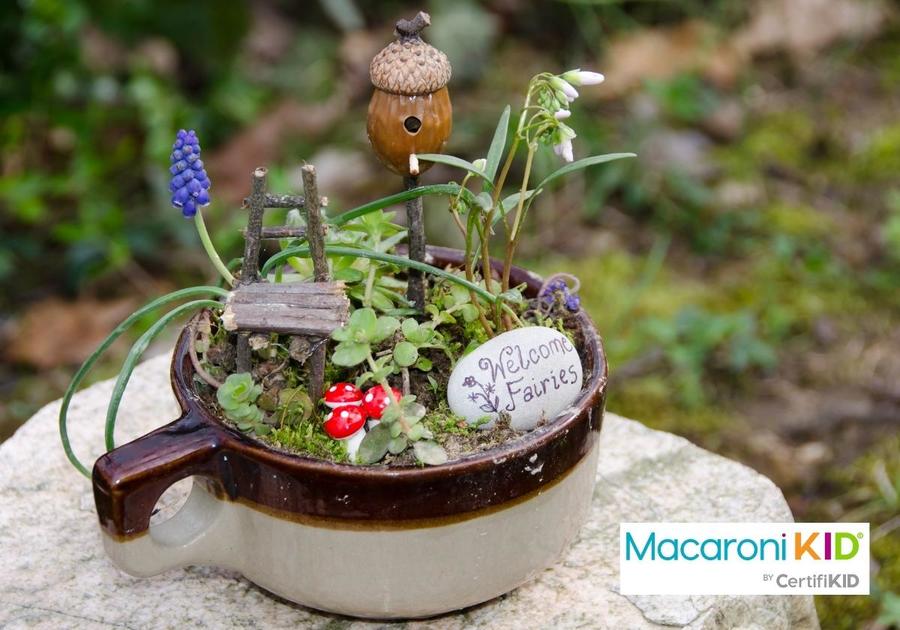Legend has it that if you build a tiny house in your yard, you just might attract a fairy or gnome. Here are a few tips for building a house that will make your magical guest feel right at home:
1. Collect your materials
Grab a basket and head outside to gather your natural building materials. Twigs, rocks, moss — include anything that inspires your kids with its shape, texture, or color. Just make sure you don't harm any trees or other living things! Let your kids know their fairy house should be made primarily of natural materials to blend in with its environment. Fairies and gnomes don't prefer plastic! However, they do understand if you don't have a lot of space and need to use a container like an old flowerpot or ceramic dish.
While your kids can be as creative as they want to be when gathering natural construction materials, here are some ideas:
Nuts Seed pods Acorns Berries Gourds Pine cones | Feathers Dry grasses Leaves Shells Bark Milkweed |
For structural support, consider materials like:
Hot glue
Twine
Rubberbands
 gmnicholas via Canva gmnicholas via Canva |
2. Create your platform
Your fairy gnome house needs a strong foundation, especially if you are planning to transport it outdoors. Man-made material is OK here, too, but plan ahead for how you'll cover it up with natural materials when you find the perfect spot for your house if you want it to look natural. Possible platforms: A plate, a piece of wood, or a large flat rock.
 Fiona Graham via Canva Fiona Graham via Canva |
3. Choose your main structure
What's the heart of your house? A hollowed-out tree stump, large shell, or fairy-friendly earthenware pot? Whatever you decide, make sure there's enough space left on your platform for porches or gardens if you're planning to add them later!
 JustAHobbyMommy via Canva JustAHobbyMommy via Canva |
4. Decorate!
Attract your fairy or gnome with a beautifully decorated house. Work from the outside in, starting with large outdoor embellishments like doors and windows before adding smaller pieces like mailboxes. Interiors can include moss for carpeting and tiny furniture fashioned from twigs and pebbles. Use your imagination!



